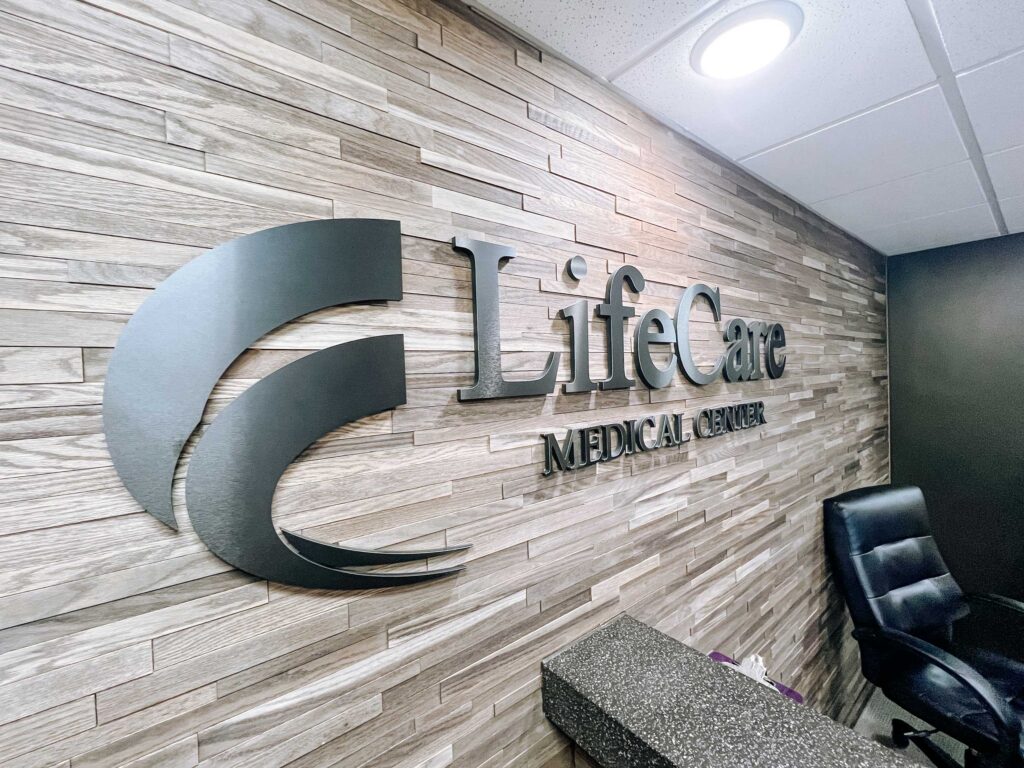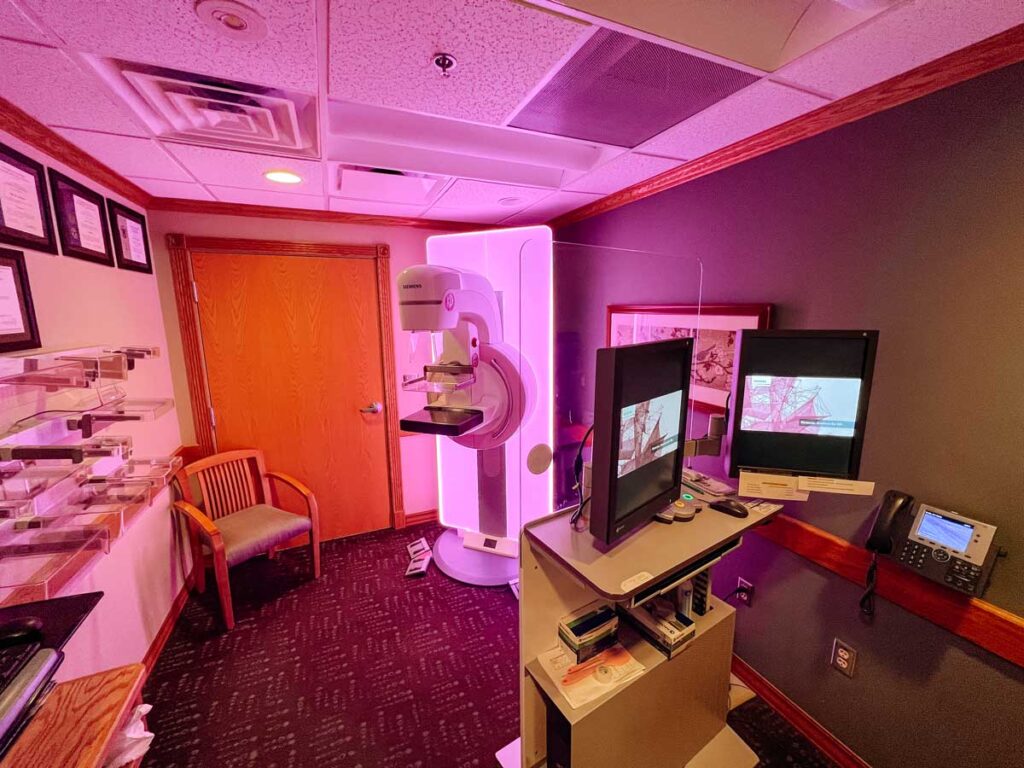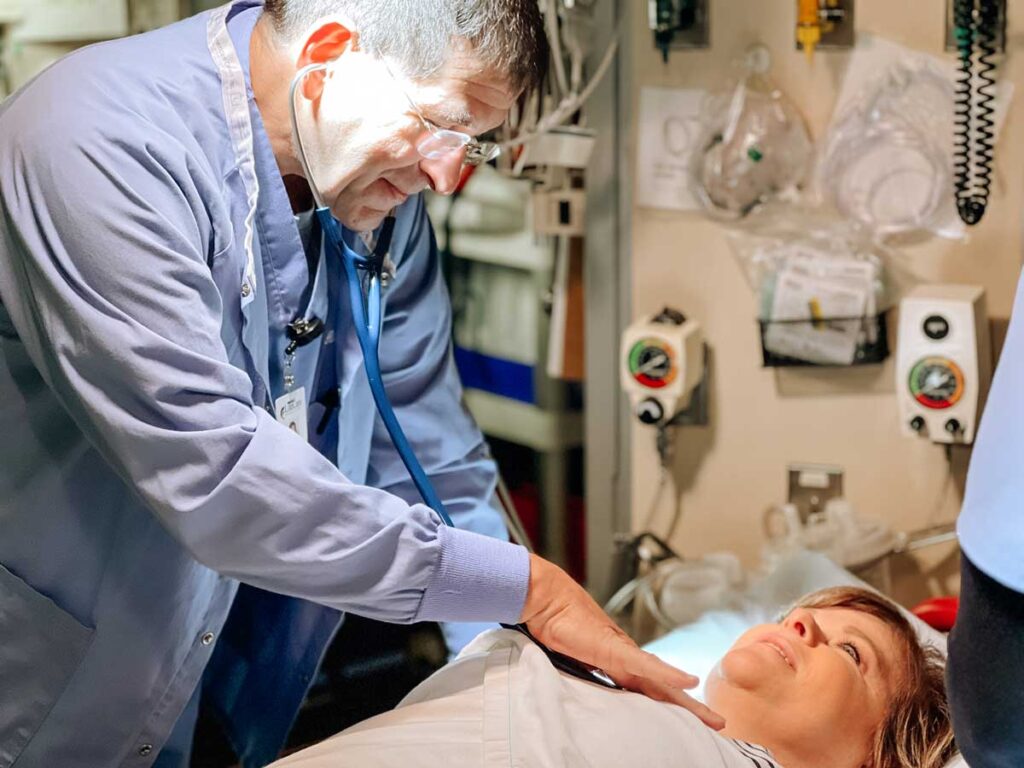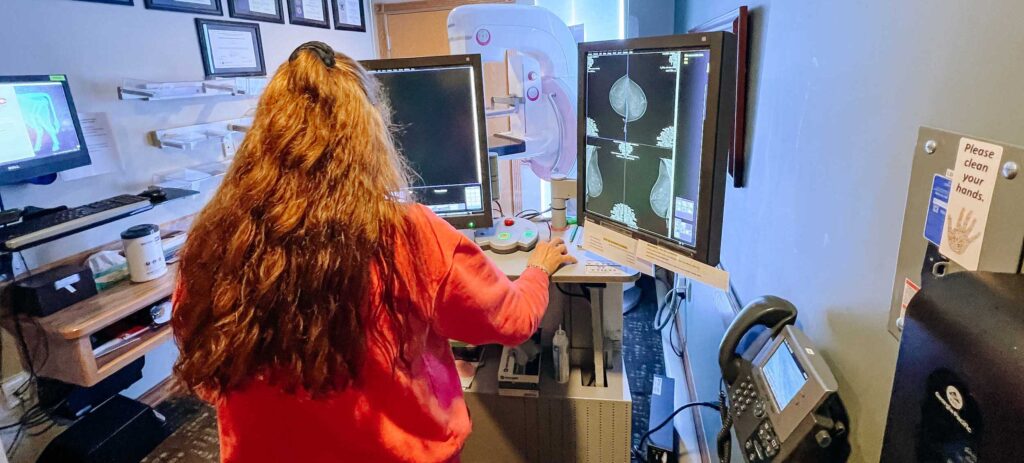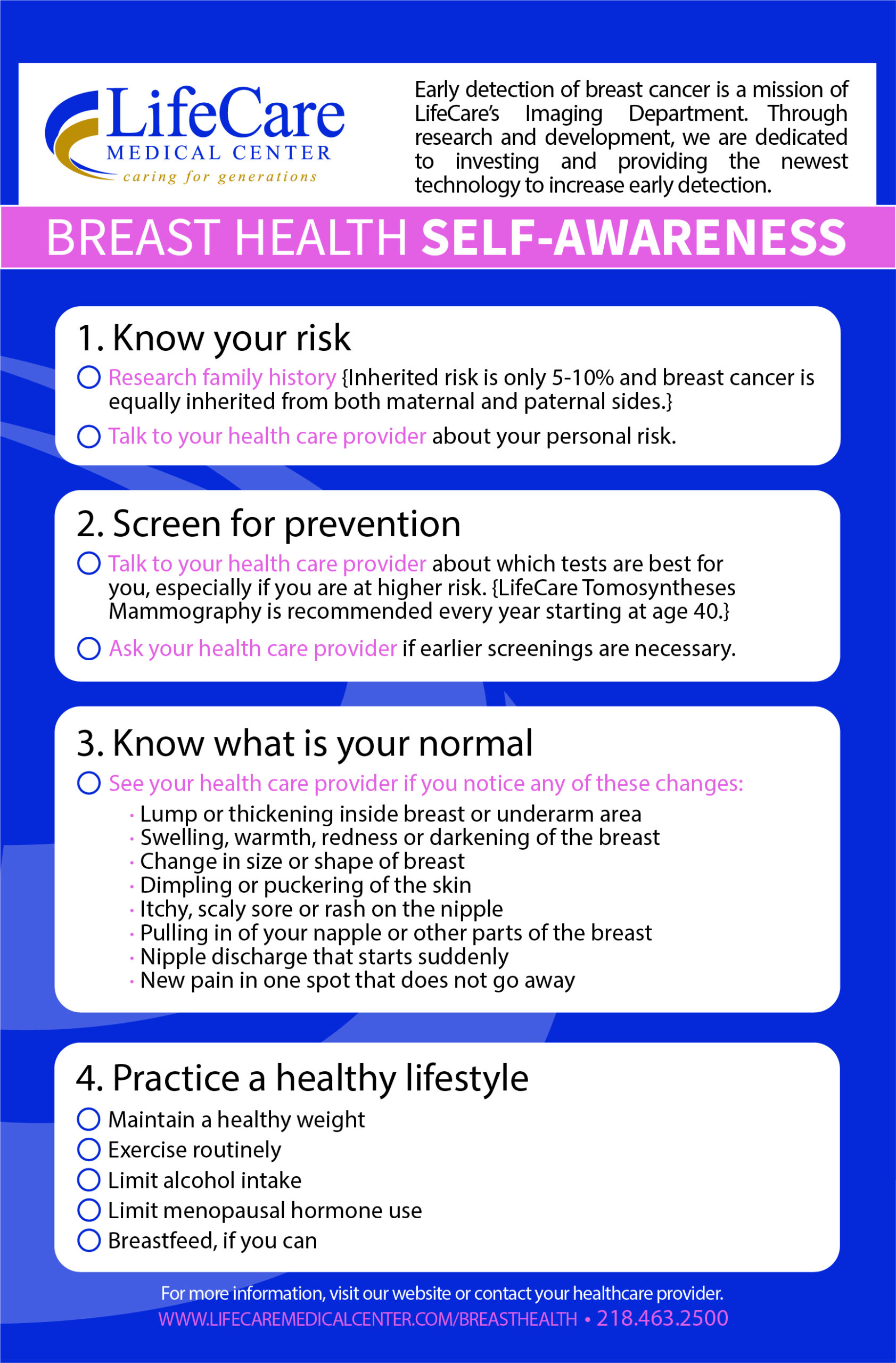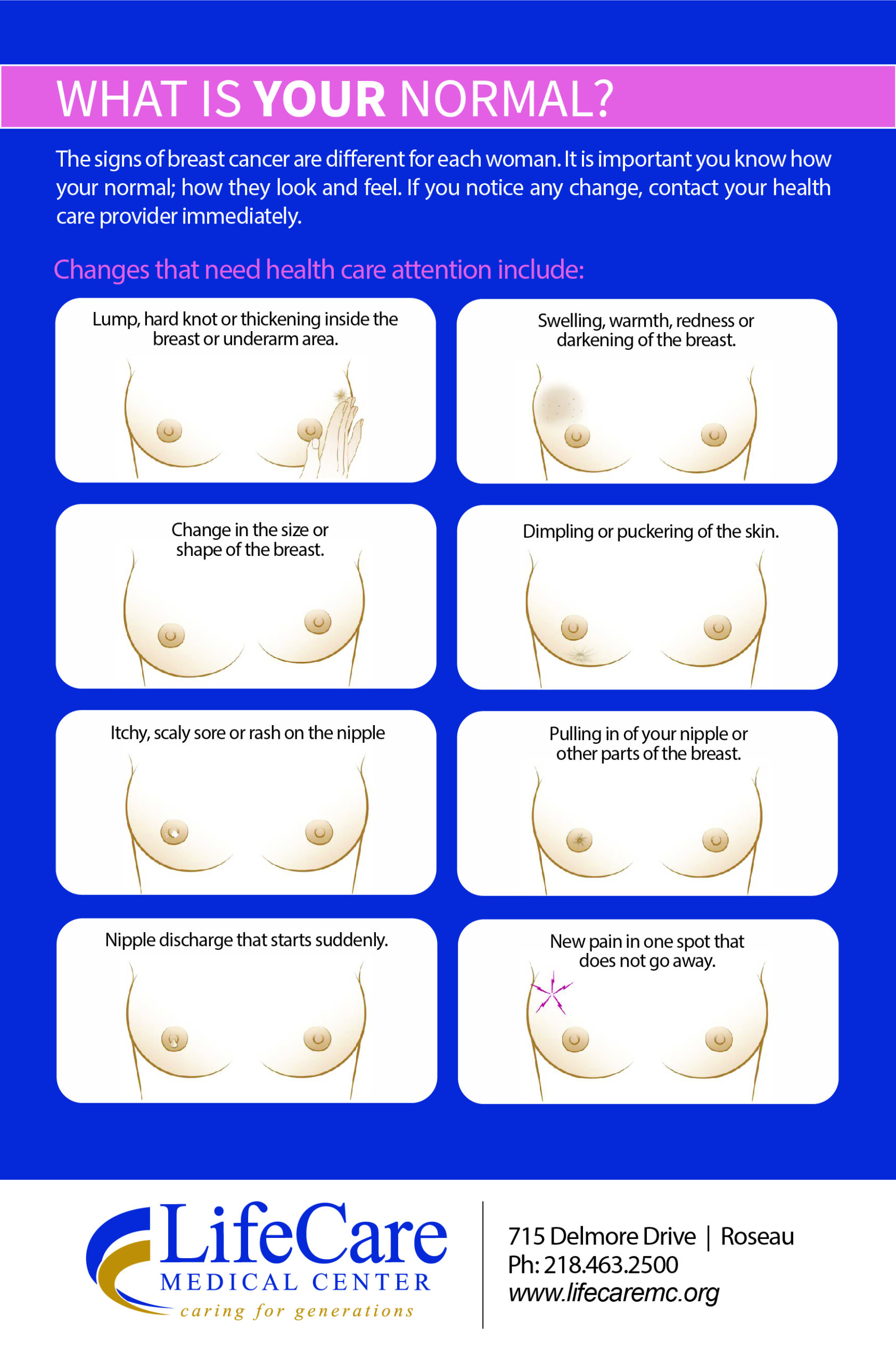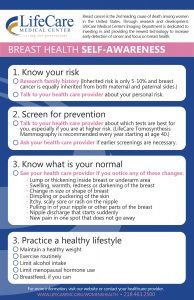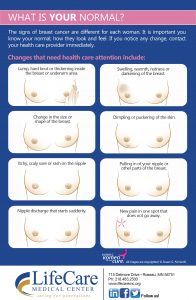LifeCare Breast Health Self Awareness
At LifeCare, we offer advanced digital Tomosynthesis (3D) mammography. Mammography provides an x-ray examination of breast tissues. It uses a very low dose of radiation and is considered very safe. Digital Tomosynthesis mammography creates three-dimensional images of the breasts and offers exceptional image clarity and detail by imaging the breast in several “layers.” The results include fewer biopsies and additional callbacks as well as increased accuracy.
The goal of screening mammography is to detect cancer when it is still too small to be felt by a doctor or the patient. Early detection of small breast cancers by screening mammography greatly improves a woman’s chances for successful treatment.
The American College of Radiology currently recommend that a woman of average risk have a mammogram every year starting at age 40. If you have a family history of breast cancer, your doctor may recommend beginning screening mammograms earlier. If you are already experiencing symptoms or notices changes such as nipple discharge or a lump in the breast, a mammogram should be performed.
Need help paying for a mammogram?
Through a grant provided by SAGE screening has funds available to help pay for the cost of a digital mammogram. Applying for the funds is simple because the ultimate goal is to ensure every woman who needs a mammogram gets one as early as possible.
For information about obtaining a free or reduced cost mammogram, contact LifeCare Imaging at 218-463-4753.

